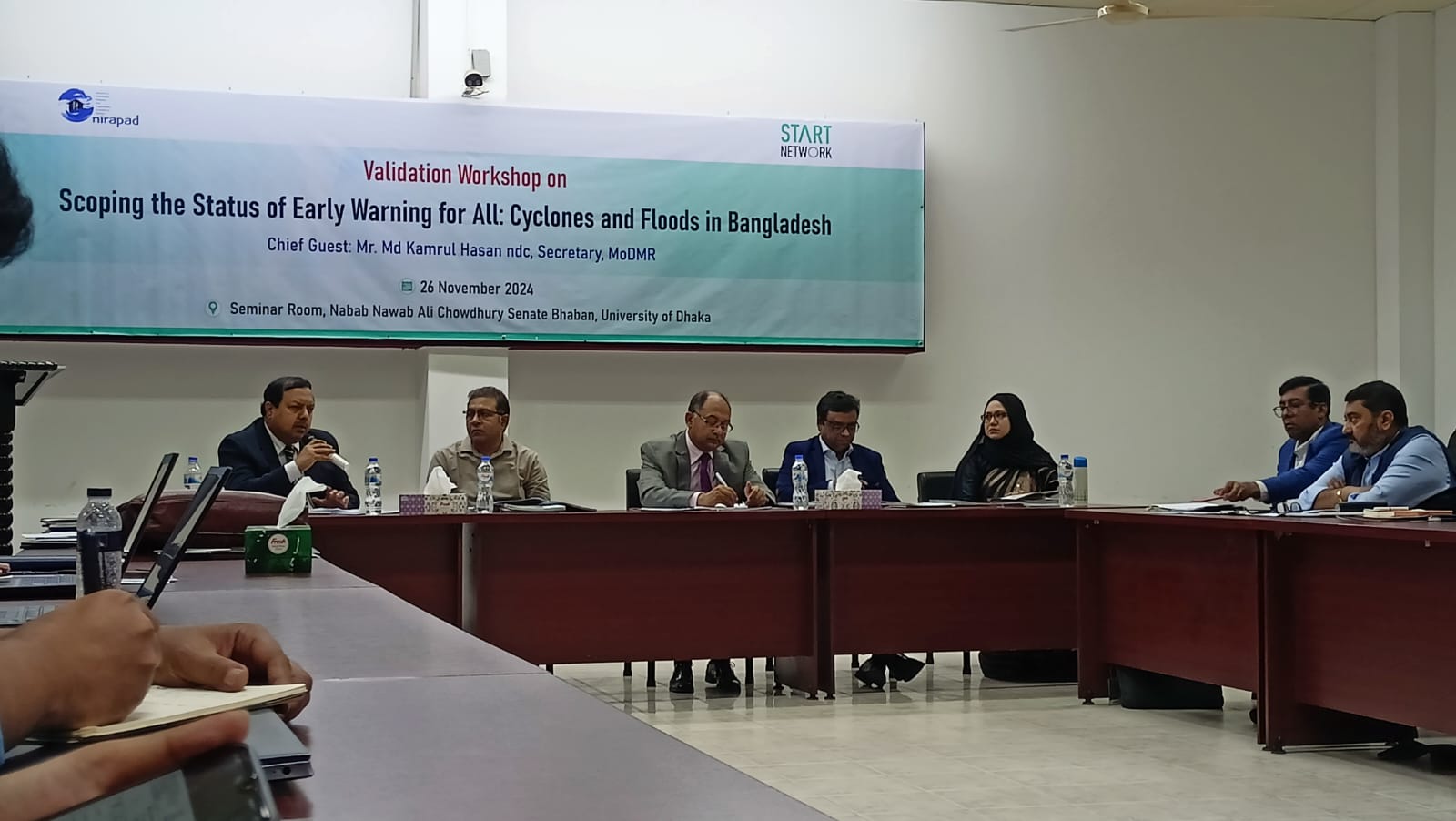
Validation Workshop on Scoping the Status of Early Warning for All: Cyclones & Floods in Bangladesh
The Validation Workshop on "Scoping the Status of Early Warning for All: Cyclones & Floods in Bangladesh" took place at the Nabab Nawab Ali Chowdhury Senate Bhaban of the University of Dhaka on November 26, 2024. This landmark event was hosted by the Department of Meteorology, University of Dhaka, and collaboratively organized by START Network and Nirapad Bangladesh. The workshop brought together a distinguished group of experts, policymakers, and practitioners to reflect on the critical findings of a study conducted under the leadership of Dr. Fatima Akter, Chairperson and Associate Professor of the Department of Meteorology.
The workshop was graced by distinguished guests, with Md. Kamrul Hasan ndc, Secretary of the Ministry of Disaster Management and Relief (MoDMR), serving as the Chief Guest. Special guests included Mr. Ahmadul Haque, Director (Admin) and Deputy Secretary of the Cyclone Preparedness Programme (CPP); Sajid Raihan, Country Manager of START Fund Bangladesh; and Dr. Md. Shameem Hassan Bhuyian, Deputy Director of the Storm Warning Centre (SWC), Bangladesh Meteorological Department (BMD). The event also welcomed esteemed resource persons from government and non-government organizations across the country, reflecting a unified commitment to the objectives of the Early Warning for All (EW4All) initiative.
The workshop revolved around the findings of a comprehensive study spearheaded by Dr. Fatima Akter. In her presentation, Dr. Akter detailed the current landscape of early warning systems in Bangladesh, highlighting both achievements and gaps. The discussion was organized around the four pillars of the World Meteorological Organization’s (WMO) Early Warnings for All (EW4All) initiative: disaster risk knowledge, detection and forecasting capabilities, warning dissemination and communication, and preparedness and response measures. These pillars serve as the foundation for ensuring that every individual is protected from hazardous weather, water, or climate events, underscoring the urgency of universal protection from hydrometeorological and related environmental hazards. Experts from key organizations such as the German Red Cross (GRC), the International Federation of Red Cross and Red Crescent Societies (IFRC), Bangladesh Meteorological Department, Bangladesh Water Development Board, Bangladesh Red Crescent Society (BDRCS), Nirapad Bangladesh, Anticipation Hub, and various technical institutes participated in dynamic group discussions. These discussions were structured to address each pillar comprehensively, focusing on actionable insights and strategies to strengthen Bangladesh’s early warning infrastructure.
The workshop reinforced the collective resolve of stakeholders to take decisive actions for building a more resilient future. The event not only validated the findings of the study but also set the stage for continued collaboration and innovation, ensuring that Bangladesh remains at the forefront of global efforts to implement the Early Warning for All initiative.